Second spring
中国日报网 2025-04-08 10:35

Reader question:
Please explain this sentence, particularly “second spring”: His career has enjoyed a second spring over the last 15 years.
My comments:
Whose career are we talking about?
Well, never mind. Let’s say this is an artist, for example, a writer. He’s been enjoying a second spurt of success over the last 15 years after a period of relative lull and lack of success.
That’s what “his career has enjoyed a second spring” means. In other words, the writer has rediscovered the old magic, the magic that had brought him success in the early years of his career.
After that early success, however, he struggled. Perhaps he suffered a writer’s block. He no longer had good ideas. Nothing he wrote sparkled like before. His creative well dried up, so to speak.
Then, somehow during the last 15 years, he’s rediscovered his original form. He’s been writing best sellers again.
In other words, he’s been enjoying a second spring.
Spring is the first of four seasons of the year, the next three being summer, autumn and winter. Every year, we have one spring, with the next spring coming only after the following summer, autumn and winter are all over.
Spring represents birth as grass and trees turn green and flowers bloom. Everything in nature is alive, revived and are thriving again.
Hence, metaphorically, when the artist enjoys a second burst of energy and creativeness, he’s described as having a second spring or second youth.
He’s rejuvenated. It’s as if he were young again.
Likewise, anyone can have a second spring in terms of life becoming fresh and happy again. Middle-aged people, for instance, often talk about what is known as their mid-life crisis, during which they find themselves failing at whatever they do and generally lost in terms of direction and purpose. Then, they may find something refreshing, like meeting someone or finding a new hobby. That’s when they feel like they are having a second spring. All of a sudden, they’re energetic and hopeful again.
That’s the concept of “second spring”. Now, let’s read a few media examples culled from over the years:
1. Comedian, director, producer, actor, and humanitarian Jerry Lewis died at the age of 91, leaving behind a legacy that earned him the admiration and gratitude of many, even as it grapples with its few controversial aspects that scholars of film and TV would now do their best to resolve.
As CNN reports it, Lewis rose to fame in the 1950’s, first on his own innate comedic talent and later on, watched his career skyrocket as part of a musical tandem with Dean Martin. This partnership with Brat Packer Martin, which alternated between bromance and frenemies long before those modern concepts were born, lasted for ten years.
While Martin’s star soon overwhelmed his former colleagues after the professional breakup, Lewis found his second spring in France, where moviegoers loved his endearing puppy-eyed slapstick. His tongue-in-cheek directness, which worked in broad comedy, would get him into trouble later on as the host of the Muscular Dystrophy Association’s (MDA) annual fund-raising telethon.
As The Washington Post recounts, his freewheeling, no-holds-barred use of language which has been deemed politically incorrect drew the ire of the MDA’s supporters. Some of his more controversial verbal barrages included referring to them as “cripples” and alluding that the telethon donors signed their checks for the association mainly out of “pity.”
Under fire, Lewis did apologize to the MDA and explained that his actions were governed by a simple desire to generate a lot of funds for the kids who needed them. In this area, he did succeed. According to The Sun, Lewis did raise over $2 billion dollars for the association in over 40 years until he resigned as its chairman in 2011.
Lewis himself was worth $50 million at the time of his death. He is survived by his second wife and seven grown children from his present and past marriages. Although he has been nominated for and won several industry awards like the Emmy’s, his highest honor probably was his nomination for a Nobel because of his humanitarian projects.
- Jerry Lewis dead at 91: The legacy of the ‘controversial’ comedian, Born2Invest.com, August 21, 2017.
2. To make a thinking machine is one of humanity’s oldest dreams. And since Allan Turing’s 1947 lectures on AI, programmable computers seemed to be the best way to go. Expectations were extraordinarily high in the 1950s and ’60s, but without major breakthroughs, the whole subject lapsed temporarily into obscurity.
Now, advances in the cognitive sciences that are improving our understanding of the nature of intelligence, memory, and perception from the biological perspective, coupled with the ready availability of ever-faster computers, are creating a second spring for AI – and a mecca for multidisciplinary scientists.
Both AI and cognitive science rely on scientists trained in many disciplines, and – as scientific fields go – they overlap considerably. Accordingly, they often come in academic twin packs, as is the case in Utrecht, the Netherlands. Here, Utrecht University’s Cognitive Artificial Intelligence (CKI) undergraduate and graduate courses are based on sound training in mathematics and logic, but at the same time incorporate neurosciences, linguistics, psychology, informatics, and philosophy.
- Artificial Intelligence: A New Mecca for Multidisciplinary Research, Science.org, August 16, 2002.
3. “Comeback” seems to be the buzzword in Formula 1 these days, with recently retired Sebastian Vettel not ruling out a return to the grid in the future but warned by Fernando Alonso to think twice.
Quitting at 36, while around him F1 is attracting drivers of Vettel’s generation cannot have gone unnoticed to the four-time F1 World Champ. Looking around he will see Kevin Magnussen, Nico Hulkenberg and Daniel Ricciardo… all Comeback Kids Old Boys. As is, of course, the Comeback King of this era, Fernando Alonso who at 42 is driving rings around rivals almost half his age.
While Vettel went about saving the planet, sailing without horsepower and other projects retired WDCs get involved in, thrilling, no doubt, but interests that appear unable to compete with the allure of F1. However think before you leap is advice from Alonso, the man who replaced him at Aston Martin.
With word of Vettel opening the door to a return to F1, journos in Singapore tapped up Alonso for comment on the matter, he ventured: “It’s up to him, obviously, if he thinks about it. As I said, I think when Daniel came back, it was a challenge, coming back to F1 cannot be underestimated. And yes, it could be a challenge for sure.”
Inevitably Alonso’s longevity in the sport was also brought up because, at the Singapore Grand Prix, he is poised to become the first F1 driver to complete 100,000 km Grand Prix race laps. The incredible milestone will be reached on lap 16 of the race at Marina Bay Circuit on Sunday.
Asked about the achievement, Alonso said: “That’s race kilometers. They never count every practice, qualifying or testing. So I remember the first year of testing in 2002 when I was a test driver, I did 40,000 km in that season alone.
“If you put all the numbers together, they’re a lot of laps. Hopefully, we see the chequered flag on Sunday. Let’s see the next few years and how many more laps I complete,” added the Spaniard, who is competing in his 371st Grand Prix this weekend.
Notably, in April, when it emerged that Aston Martin had a bullet of a car which Alonso used to good (and podium) effect, Vettel commented: “I have no regrets about stepping down. Of course, it would be easier if the car wasn’t quite as good now, but that’s where the joy really outweighs the regret.
“Also for Alonso. He had a few years where he didn’t have a good car and so maybe he’s having a second spring,” added the German, perhaps with his own ‘second spring’ seeding in his mind.
- Alonso warns Vettel: Don’t underestimate F1 comeback, GrandPrix247.com, September 14, 2023.
本文仅代表作者本人观点,与本网立场无关。欢迎大家讨论学术问题,尊重他人,禁止人身攻击和发布一切违反国家现行法律法规的内容。
About the author:

Zhang Xin is Trainer at chinadaily.com.cn. He has been with China Daily since 1988, when he graduated from Beijing Foreign Studies University. Write him at: zhangxin@chinadaily.com.cn, or raise a question for potential use in a future column.
(作者:张欣)









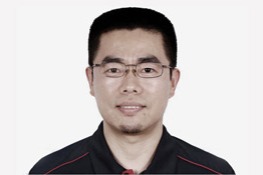
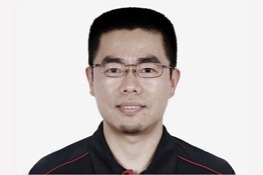
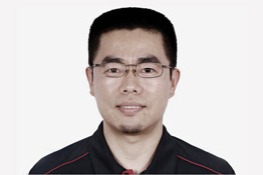
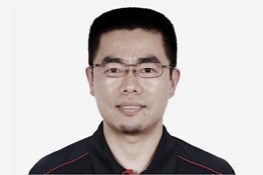
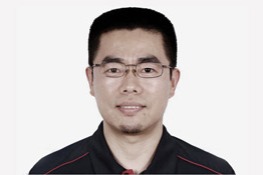



 英语点津微信
英语点津微信 双语小程序
双语小程序